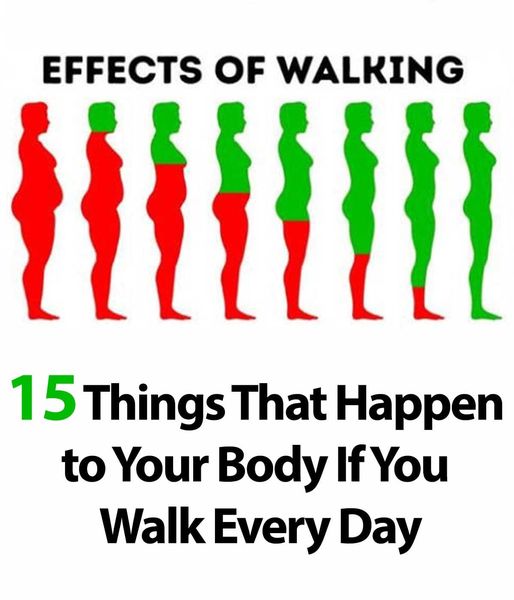Walking is among the simplest yet most potent forms of physical activity. It’s within reach for nearly everyone and offers a myriad of health advantages. Whether you opt for a 10-minute walk or aim to achieve 10,000 steps daily, stepping out and moving can greatly enhance your overall well-being. The following are 15 ways your body reaps benefits from daily walking, as reported by various expert sources:
1. Elevates Spirits and Eases Tension
Strolling has been validated as a mood enhancer. Just a brief 10-minute walk can uplift your mood, diminish feelings of anger, and mitigate symptoms of depression.1 Walking through verdant areas amplifies these effects, aiding in soothing your nervous system and lowering stress levels. Walking with companions or loved ones can also fortify social connections, enhancing happiness and alleviating feelings of isolation.2
2. Revs up Caloric Expenditure and Sustains a Lean Weight
Engaging in daily walks can help manage weight by increasing calorie burn and amping up metabolism. Intermittent walking, involving alternating between brisk and leisurely paces, is especially effective in torching calories and aiding in reducing body fat, especially in the abdominal region. Tackling inclines or diversifying your routes can further magnify these benefits.
3. Enhances Cardiovascular Well-being
Regular walks can lower blood pressure and slash the risk of heart ailments and strokes. For every 1,000 steps taken daily, systolic blood pressure may drop by 0.45 points. Research indicates that strolling can curtail the risk of cardiovascular episodes by as much as 30% when done consistently and in accordance with recommended physical activity guidelines.
4. Mitigates the Likelihood of Chronic Ailments
Research has demonstrated that walking can diminish the chances of developing chronic conditions such as type 2 diabetes, hypertension, and obesity. A study from 2022 discovered that achieving 8,200 steps daily can diminish the risk of disorders like major depressive disorder and gastroesophageal reflux disease (GERD). Even brief walks post-meals can assist in regulating blood sugar levels and preventing type 2 diabetes.
5. Enhances Slumber Quality
Consistent physical activity can refine sleep quality and expedite falling asleep. Walking ups the production of melatonin, the hormone responsible for regulating sleep. Postmenopausal women and others who stride outdoors daily frequently attest to superior sleep quality and duration compared to sedentary individuals.
6. Enhances Cognitive Function and Recall
Walking boosts cognitive function, especially among senior citizens. Studies suggest that brisk walking for one hour, thrice a week, enhances the effectiveness of brain regions implicated in decision-making. The augmented blood flow to the brain during exercise is believed to enhance recall and shield against cognitive deterioration.
Read More: How Walking Can Assist You in Shedding Weight and Preserving It
7. Eases Joint Discomfort
8. Slows the Onset of Varicose Veins
9. Enhances Digestive Health
Walking aids digestion by invigorating the core and abdominal muscles. It facilitates the movement of food through the digestive tract and may alleviate bloating and constipation. This explains why many medical professionals advocate walking to patients post-surgeries or other medical interventions.
10. Bolsters Immune Response
11. Reinforces Bones and Averts Bone Deterioration
Walking contributes to sustaining bone density, thereby lessening the risk of osteoporosis and fractures. Research demonstrates that walking for a minimum of 30 minutes daily can decelerate the rate of bone loss, particularly in postmenopausal women.
12. Sparks Creativity
13. Facilitates the Achievement of Other Health Objectives
Establishing a daily walking regimen often paves the way for other wholesome routines. Regular walking boosts your sense of achievement and can spur you on to define and accomplish more health-related objectives, such as consuming healthier foods or sampling alternative types of exercise.
14. Bolsters Graceful Aging
Walking not only improves your current health but also promotes enduring vitality. Investigations indicate that even modest movement can slash the likelihood of mortality by up to 31% in individuals meeting the criteria for physical activity. Swifter walking speeds have been correlated with even more pronounced dips in mortality risk.
15. Boosts Lifespan
Conclusion
Walking is an uncomplicated, within reach approach to boost your physical and mental well-being. From enhancing brain function to mitigating chronic ailment risks, it presents a myriad of advantages that can aid in leading a lengthier, healthier life.



